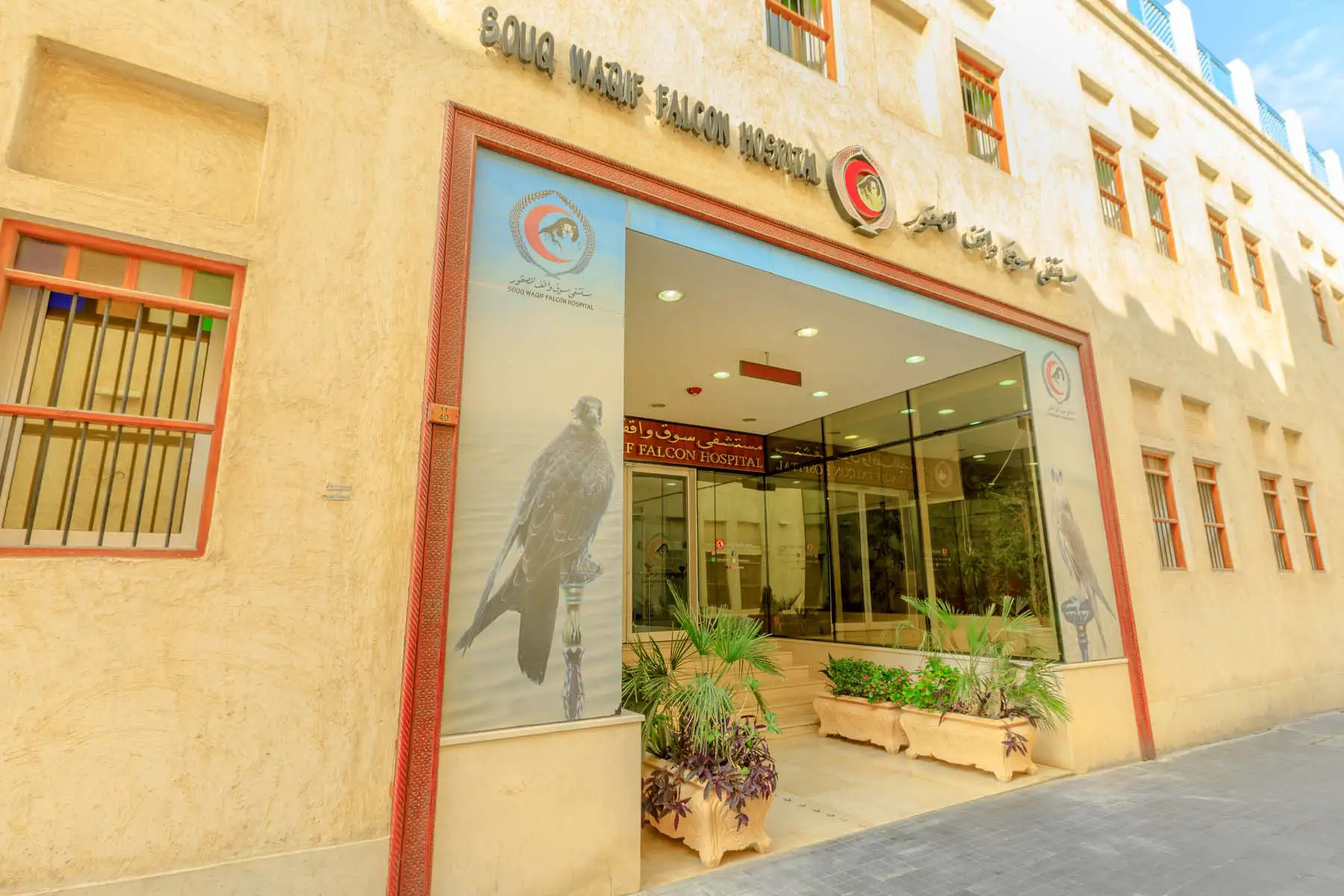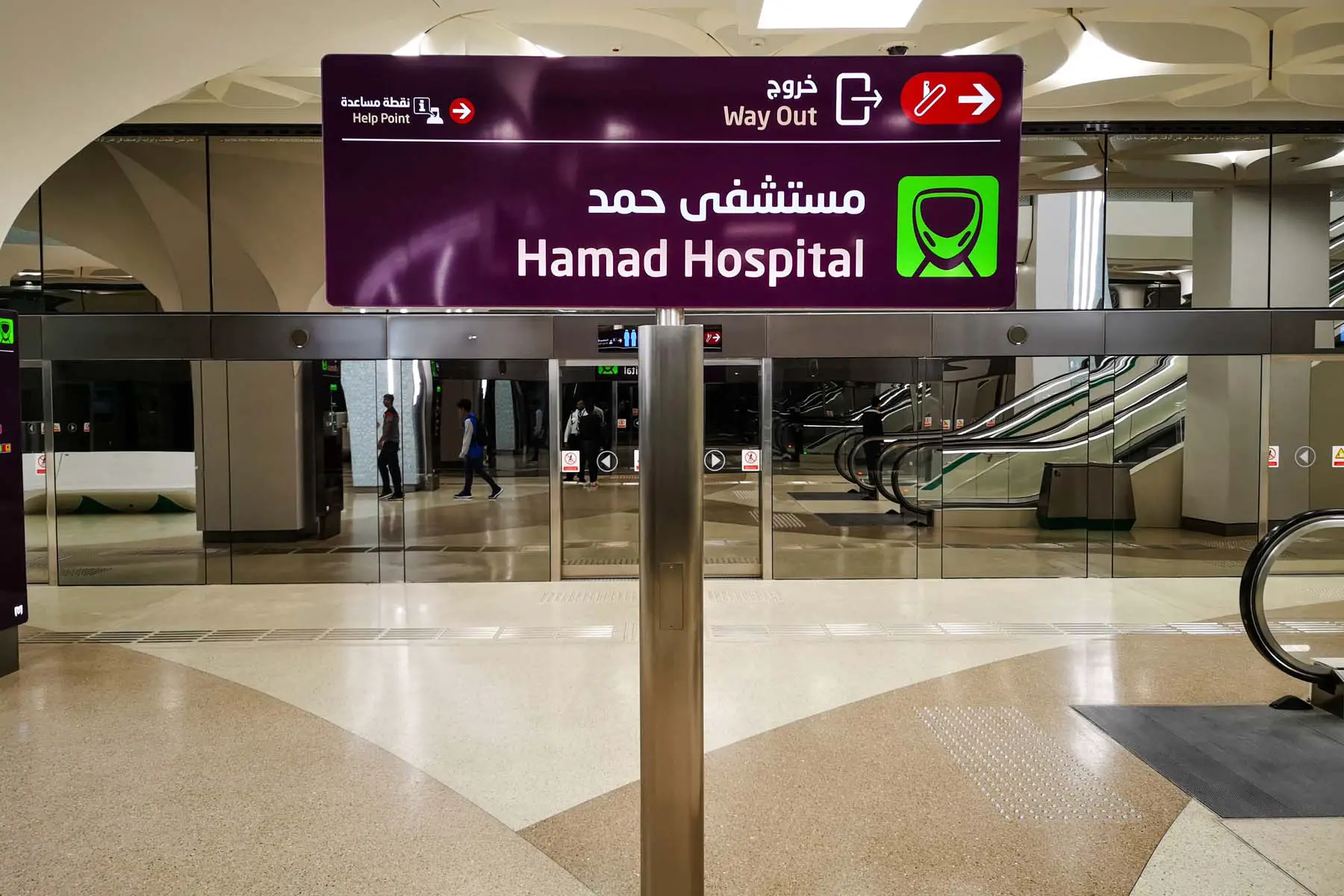Expats relocating to this tiny Gulf state will be pleased to discover that the local Qatari healthcare system provides a high level of service for all residents. However, due to the conservative nature of the country, you may not be able to access all the sexual health services that you may be used to.
To help you navigate what to expect in your new home, this article looks at all aspects of sexual and reproductive health in the country. This includes the following topics:
- Attitudes towards sex and sexuality in Qatar
- Accessing sexual health services in Qatar
- Insurance for sexual healthcare in Qatar
- Contraception in Qatar
- Pregnancy and childbirth in Qatar
- Abortion in Qatar
- STIs and STDs in Qatar
- Erectile dysfunction treatment in Qatar
- Feminine hygiene products in Qatar
- Cancer screenings in Qatar
- Services dealing with sexual problems in Qatar
- Services dealing with sexual abuse and assault in Qatar
- Young people’s sexual health in Qatar
- LGBT+ sexual health in Qatar
- Useful resources
Cigna Global
Enjoy peace of mind while living in Qatar with Cigna Global’s long-term international health insurance plans (12+ months). Get tailored coverage, direct billing with many providers, complex case management, and global care on demand, with access to a network of 1.5+ million doctors, specialists, and therapists.
Attitudes towards sex and sexuality in Qatar
Nestled in the Arabian Gulf, the tiny country of Qatar is considered very conservative when it comes to matters of sex and relationships. This is especially true when compared to certain Western countries, such as those in Europe. This may be something to consider before moving to Qatar, particularly if you are single or a member of the LGBT+ community.

For example, Qatari culture only accepts sexual relationships in the context of marriage. Indeed, sexual relationships outside of marriage are not allowed according to local Qatari law (in Arabic). This is in line with several other Islamic countries, which typically prohibit sex outside of marriage. Therefore, to access certain sexual health services in Qatar, you will need to be married. Other services are simply not available in the country.
However, despite these attitudes towards sex, the Qatari healthcare system caters well to certain aspects of sexual and reproductive health. This includes the availability of certain birth control, screenings for cancers related to the reproductive system, and pregnancy care.
Accessing sexual health services in Qatar
Qatar has a well-funded healthcare system that ranks 20th in the world according to the Health Care Index 2021. One of the first things you’ll need to do when arriving in the country is to apply for a health card and sign up with a local medical center. Alternatively, you may prefer to use private health insurance. For more information on how to access local healthcare, be sure to read our article on the Qatari healthcare system.
In the public system, you can easily contact your GP about any issues with your sexual or reproductive health. They will then be able to provide you with further information based on your circumstances. If you have private health insurance, then you may be able to directly contact a specialist. Check the Council for Healthcare Practitioners website for more information about healthcare professionals in Qatar.
Typically, you’ll have plenty of choices when choosing certain services in Qatar, such as gynecologists or sexologists. Some will be able to provide care in English or other languages, but you may need to check ahead of time. Online consultations are also available from certain providers. However, remember that some services may not be available to unmarried expats. In this case, you may have to travel outside the country to access this care.
Insurance for sexual healthcare in Qatar
The Qatari government issued a new law in October 2021 requiring employers to provide health insurance coverage for their foreign employees and their families. However, while the public healthcare system in Qatar ranks well when compared to other systems around the world, many expats choose to take out private health insurance before they arrive in the Gulf.

Private health insurance covers a wide variety of medical specialties such as advanced dental care, alternative therapy, and sexual healthcare. One other advantage of private medical insurances is that it covers the gaps during re-location and traveling. Private insurers in Qatar are international, which means you are also covered elsewhere. Insurers in Qatar include:
You can read our guide about private health insurance in Qatar to get more information. To better understand your options and the differences between private and public care in the country, be sure to also read our introduction to the Qatari healthcare system.
Contraception in Qatar
The Qatari healthcare system reduces unplanned pregnancies through the wide availability of various contraceptive measures. There are a lot of off-the-shelf contraception methods available for both men and women living in Qatar, with most available without prescriptions. Furthermore, residents in Qatar can seek help with family planning via the Primary Healthcare Corporation.
A 2011 study of 1,130 Qatari women found that, among women who used contraception, the most popular contraceptive method was the IUD, used by 33% of women surveyed. In addition, 30% used the contraceptive pill. Apparently, around 38% of women use contraception in the country.
Condoms
Condoms are one of the most accessible contraception methods in Qatar because they are easy to use and relatively cheap. A lot of shops and markets sell them. Prices range between QR12 and QR40. You can buy condoms online or in stores.

Birth control injections
Women can take birth control injections every 12 weeks, which can be more than 99% effective at preventing pregnancy. However, bear in mind that if you wish to get pregnant later, it takes up to a year for fertility to return to normal after stopping the shots. Women wishing to receive the injection require a prescription from the GP or a gynecologist.
Implants
Implants are small plastic rods that work by stopping the ovaries from releasing egg cells and preventing sperm from entering the womb. It is more than 99% effective at preventing pregnancy and lasts for three years. In Qatar, you will need to visit a clinic or hospital to receive the implant after a referral from your GP or gynecologist.
Oral contraceptive pills
The contraceptive pill is taken orally every day to prevent pregnancy. You can find these pills in pharmacies. It’s possible to buy oral contraceptive pills without a prescription, but if you’re not sure about how they work, it’s best to visit your GP to assess your situation.
Copper and hormonal IUD
There are two options when it comes to IUDs: the copper IUD or the hormonal one. The copper one prevents pregnancy by making it harder for an egg to implant in the uterus, and by stopping sperm from fertilizing eggs. The hormonal IUD also thickens cervical mucus and thins the uterine lining to prevent pregnancy from occurring.
Both methods are highly effective, but it’s a good idea to talk to your GP about your options to decide what will suit your body best.
Morning-after pill
Unfortunately, the morning-after pill is illegal in Qatar.
Pregnancy and childbirth in Qatar
Should you fall pregnant in Qatar while married, you’ll be pleased to know that the local healthcare system is well-equipped to provide care and support with every step of your journey. You can access good quality pre-and post-natal care, and have a number of choices when it comes to your birthing options. For more information, read our article on having a baby in Qatar.

However, it’s a very different picture should you fall pregnant outside of marriage in Qatar. Indeed, under Qatari law, getting pregnant while unmarried is effectively illegal. Expat mothers face jail time of up to 12 months for delivering an illegitimate child in the country. Therefore, you may wish to examine your options outside Qatar should you wish to fall pregnant, or suspect you might be.
Abortion in Qatar
It’s illegal to have an abortion in Qatar. According to Qatari law, women who take medicine that leads to miscarriage without medical necessity can face a prison sentence of up to three years. Doctors who intentionally abort pregnancies without medical necessity can also face prison, for up to ten years. Due to this, illegal abortions take place in Qatar that are highly dangerous and should be avoided. While attitudes are slowly changing, should you face an unwanted pregnancy, your safest option is to travel to another country to access the care and support needed.
STIs and STDs in Qatar
Qatar’s open data portal helps raise awareness of STIs in the country by stating current rates of diseases. For example, in 2017, there were 26 reported AIDS/HIV infections and 45 syphilis infections. The number of genital herpes cases in Qatar was three while cases of genital warts hit 119.
Studies show that the percentage of STIs among Qataris people is less than the percentage of non-Qatari expats. For example, a 2013 study found 5.3% of Qatari women have chlamydia, compared to 5.5% of non-Qatari women. However, the conversation around the topic remains scarce due to the country’s conservative nature.
A sexually transmitted diseases clinic opened in 2019 in Qatar. Here, medical staff not only diagnose the infection, but also provide counseling, therapies, and prevention advice for their patients.
HIV/AIDS in Qatar
As part of the visa application process, foreigners must provide blood samples, and anyone that tests positive for HIV or AIDS will have their visa application rejected. That said, the country does have special clinics for those living with HIV, where you can receive treatment, support, and guidance. Psychological support is also available for patients. For more information, visit the HIV clinic page of the Hamad Medical Corporation website.
Erectile dysfunction treatment in Qatar
According to a Hamad Medical Corporation study, 54.5% of participants suffered from Erectile Dysfunction (ED). There are several ways you can diagnose potential ED: through your doctor, through a urology specialist, and through a psychologist. After diagnosis, there are several treatments:
- Oral pills: Oral pills to treat ED are available in markets and pharmacies without a prescription.
- Hormone medication: If the reason for ED is a result of hormone deficiencies, there are injections, pills, and creams available to treat it. It’s best to consult with your GP to find out what will work best for you.
Feminine hygiene products in Qatar
All kinds of feminine hygiene products are available in Qatari markets and shops. Sanitary pads and tampons cost between QR12 to QR20. You can purchase them online, however, healthcare insurance won’t cover them.
Cancer screenings in Qatar
According to the World Health Organization (WHO), there were 1,482 new cases of cancer diagnosed in Qatar during 2020. Statistics show that 14% of these cases were breast cancer and 7% were prostate cancer. New arrivals will be pleased to know that the Qatari healthcare system pays a lot of attention to the early detection of cancer with screenings and guidance. To give you an idea of what to expect, we take you through the screening process for certain cancers.
How to get screened for cervical cancer
Statistics show that cervical cancer currently ranks as the fifth most common cancer among women in Qatar, The main reason behind this is that cervical cancer doesn’t show any symptoms until the late stages of the disease which, for many, is often too late.

In Qatar, women aged between 25 to 64 receive an invitation for cervical screening every three years to five years. The Well Woman Clinics (WWC) at primary healthcare centers in Qatar offers screenings for cervical cancer by taking a smear of cells from the cervix. You can ask for this screening at public clinics in Qatar via GP referral or self-referral.
How to get screened for breast cancer
Qatar’s Primary Healthcare Corporation offers population-based screening to a targeted group. Women are typically invited to do the screening when they are in the target group. The screening consists of a mammogram that is used to detect breast cancer. It can take place by invitation, self-referral, or GP referral. Screen for life is the campaign for early breast cancer detection in Qatar. Should you notice anything abnormal on your body, consult a doctor as soon as possible.
How to get screened for ovarian cancer
According to WHO statistics, ovarian cancer accounted for 4% of new cancer cases among women in Qatar. The usual test that doctors run for ovarian cancer is the pelvic test. There is also a blood test. Most gynecology clinics in Qatar offer tests and screenings for ovarian cancer whether by self-referral or GP referral. If you have private health insurance, you can go directly to a private clinic for early detection to put your mind at ease.
How to get screened for prostate cancer
Prostate cancer accounted for 7% of Qatar’s new cancer cases in males, according to WHO statistics for 2020. Initial prostate cancer screening is done through a digital rectal examination. Doctors will also consider any family history, another factor to keep in mind when it comes to prostate cancer early detection. Should you want an early check-up or have any questions, you should seek advice from your doctor.

How to get screened for testicular cancer
WHO statistics from 2020 show that testicular cancer accounted for 1% of new cases of male cancer in Qatar. Doctors detect testicular cancer through a physical examination of the testes, looking for mass and swelling. If you have concerns or spot anything abnormal, speak to your doctor.
How to get screened for penile cancer
Penile cancer is very rare in Qatar, accounting for just 0.07% of the total new cases within males in 2020. A GP can refer patients for diagnosis and treatment.
Services dealing with sexual problems in Qatar
If you’re experiencing sexual problems with your partner, the process to find help starts by contacting your GP. They will then be able to refer you to a specialist. Alternatively, you can always discuss sexual health problems and the method of treatments with your doctor in Qatar. These treatments could take the form of therapy or counseling. For more information on what you can expect, visit one of these websites:

The cost of any sex therapy service depends on your insurance package and what it covers. It is advisable to contact your insurance provider first to make sure you know how much you will need to pay. Alternatively, you can contact private clinics directly.
Services dealing with sexual abuse and assault in Qatar
Qatari law prohibits (in Arabic) sexual abuse, both verbally and through physical assault. If found guilty, the accused faces a penalty of prison or a financial fine up to QR5,000.
The best course of action to take when experiencing sexual harassment is contacting your nearest police station or calling the police emergency number (999). The police will investigate the incident and take the necessary actions, such as any witness statements. You should also receive a medical checkup.
However, be aware that the survivor of rape or sexual assault in Qatar may face a charge for having sex outside of marriage (Zina) as Qatar criminalizes sex without marriage. Furthermore, it’s not guaranteed that officers in police stations are trained to deal with sexual assault survivors. For more information, read this guide from the UK government.
When it comes to sexual harassment on the internet and cybercrimes, authorities advise you to keep all and any records of photos and messages. These can be essential pieces of evidence in proving the harassment. The Qatari authorities also consider sending pornography or any sexual content to children under 18 as a cybercrime. These crimes come with a potential prison sentence of up to 5 years.
Young people’s sexual health in Qatar
Qatar is a conservative, Islamic country. Therefore, you may not be able to access the same level of sexual health services for your entire family, such as sex education and other support services for youths. This may be something to consider when relocating to the country with teenagers.
Sex education in Qatar
Many Qataris believe that it is not the responsibility of the education system to discuss issues surrounding sex education. This is largely due to the religious and cultural factors at play in the country, which go against the open nature of sex education in many Western countries.

The Ministry of Education in Qatar has tight restrictions on sex education classes dealing with reproduction for both public and private schools. Biology classes include sex education from the 10th grade (15–16 years old). However, this is typically limited to the basic biological concepts, such as chromosomes, sex cells, and fertilization.
Youth sexual health
Qatar strictly prohibits sexual relations outside of marriage, which includes teenagers. Therefore, without getting married, teenagers living in Qatar cannot legally have sexual relations. There is no clear data on teenage pregnancy in the country. Furthermore, there are very few support services for teenagers, beyond medical care related to reproductive organs.
If you are a teenager and you fall pregnant in Qatar, or the parent of a pregnant teen, it is advisable to seek advice from your GP in your home country or another country that tolerates pregnancy among unmarried women.
LGBT+ sexual health in Qatar
Qatar is a conservative country that does not recognize the legal rights of LGBT+ people. Indeed, under Qatari law, it’s illegal to have a sexual partner of the same gender. Those found guilty of homosexuality face punishment of up to three years in prison. However, in Sharia courts, Muslim men could face the death penalty for same-sex sexual activity. It is also illegal for trans individuals to change their gender in Qatar. Read more on the legalities of being LGBT+ in Qatar on the Stonewall website.
Many LGBT+ Qataris hide their sexuality in their own home country to avoid persecution from authorities and the wider community. Be aware, too, that Qatar doesn’t accept same-sex marriages even if it’s legalized in another country, which obviously impacts your legal rights as a couple. If you’re a member of the LGBT+ community, you may wish to consider whether Qatar is the right place for your new life.
Useful resources
- Hamad Medical Corporation clinics – find a clinic close to your home.
- Primary Healthcare Corporation – more information on the Qatari healthcare system
- STI clinics in Qatar – a list of STI clinics
- Well Woman Clinic (WWC) – more information on women’s healthcare in Qatar
- Screen for life – Qatar’s breast cancer awareness campaign




